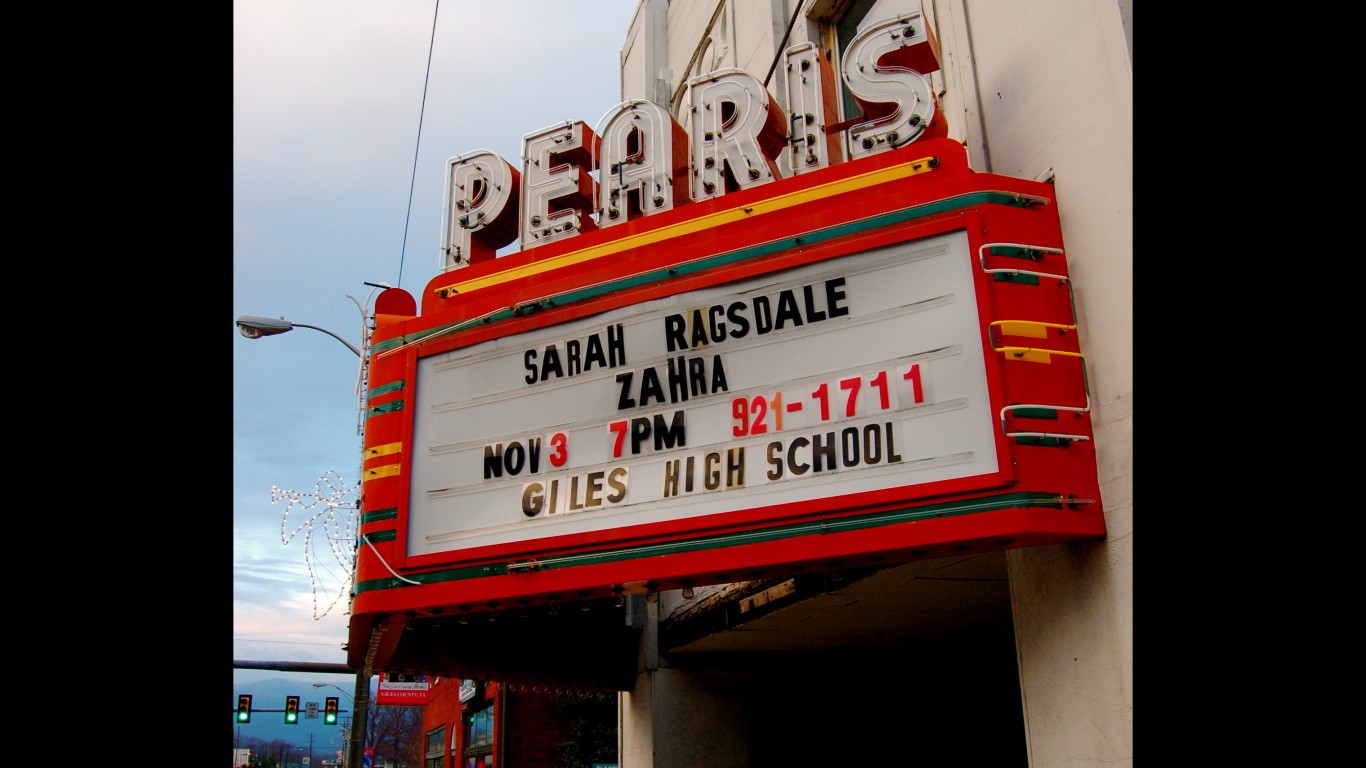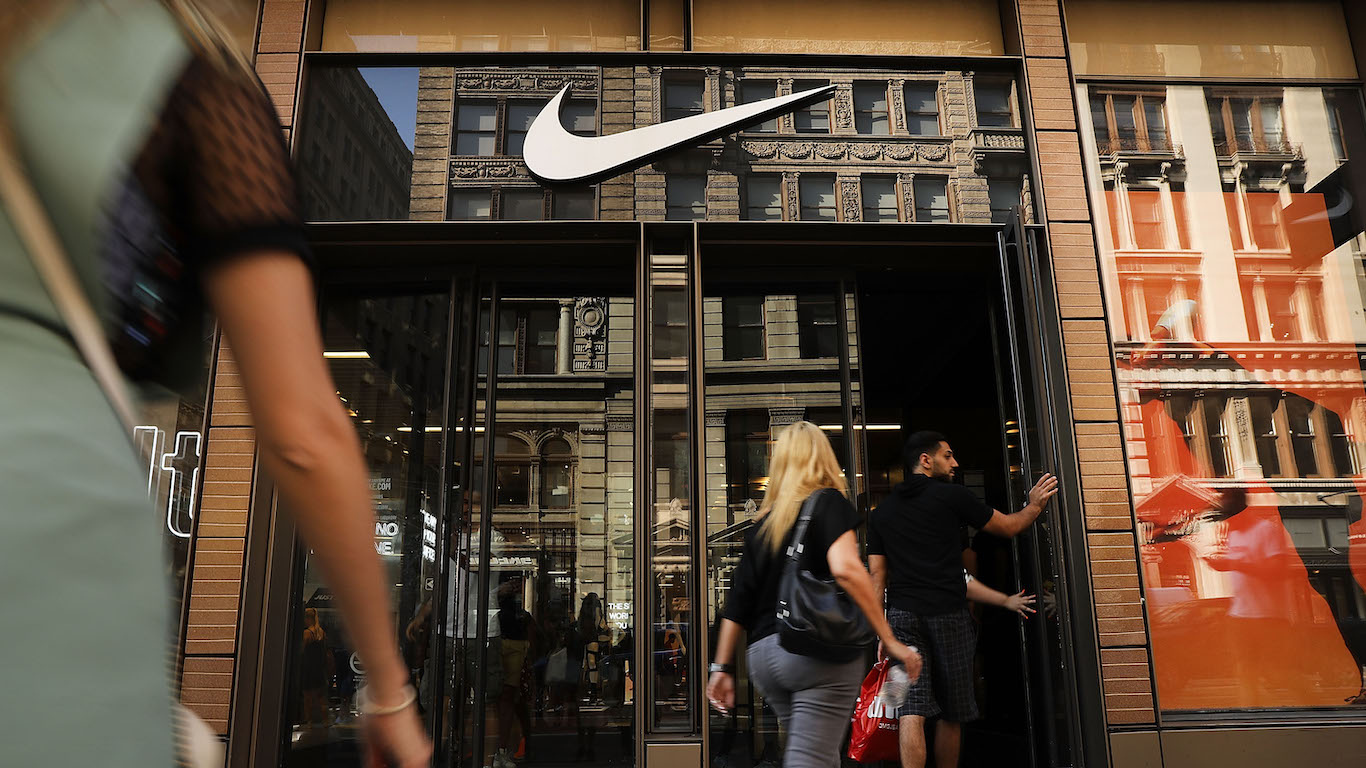
Betting on M&A deals that are likely to happen in the future is challenging. However, we know that Tapestry (NYSE:TPR) won’t soon buy Capri Holdings (NYSE:CPRI).
On Oct. 24, U.S. District Judge Jennifer Rochon blocked the $8.5 billion merger between the two companies, arguing that a combination “will substantially lessen competition in the market for accessible-luxury handbags,” Yahoo Finance reported.
While you wouldn’t think accessible luxury handbags would concern the Federal Trade Commission, the regulatory agency nonetheless sought an injunction to stop the deal in April and was ultimately successful. This caused Capri’s shares to fall by nearly half their value in Oct. 25 trading.
It’s become more challenging for large multi-billion-dollar mergers to be completed in the U.S., given the FTC’s hardline stance on anti-competitive behavior by businesses.
Despite the difficulties of completing potentially transformative deals, here are three mergers we’d love to see in 2025.
Key Points About This Article:
- Netflix (NFLX) buying Electronic Arts (EA) would bolster its gaming business.
- Starbucks (SBUX) and McDonald’s (MCD) would be a restaurant conglomerate superpower.
- EPR Properties (EPR) and Dave & Buster’s (PLAY) aren’t natural but could add value for both shareholders.
- Sit back and let dividends do the heavy lifting for a simple, steady path to serious wealth creation over time. Grab a free copy of “2 Legendary High-Yield Dividend Stocks” now.
Netflix (NFLX) and Electronic Arts (EA)

Netflix (NASDAQ:NFLX) reported Q3 2024 results on October 17 that beat analyst expectations on the top and bottom lines.
For 2024, the company expects revenue of $38.8 billion and $43.5 million in 2025, a two-year 29% growth rate. The company’s operating profit in 2023 was $7.08 billion. In 2025, that should translate into an operating profit of $9.14 billion (21% operating margin), a two-year growth rate of 29%.
Talk about consistent two-year growth rates.
Most aspects of Netflix’s business are going well. However, its gaming business could be more robust. It is one of the company’s new growth initiatives, the other being ads.
Interestingly, despite Netflix’s big ambitions in gaming, it recently shuttered Team Blue, its AAA (Triple A) gaming studio in Southern California before it even produced one video game.
The consensus is that it will license popular video game franchises rather than spend billions on developing games that may fail with gamers, saving it considerable losses.
If it still wants to be big in gaming, I could see it opting to buy someone like Electronic Arts (NASDAQ:EA), whose stock hasn’t performed in recent years, gaining just 52% in the past 60 months, about 41 percentage points less than the S&P 500.
While it might be awkward with the other video game companies on its platform, it would allow it to develop original content without reinventing the wheel.
Starbucks (SBUX) and McDonald’s (MCD)

On the surface, the combination of Starbucks (NASDAQ:SBUX) and McDonald’s (NYSE:MCD) probably seems like a crazy idea.
However, the contrarian would say that because the two businesses are facing significant issues right now– SBUX CEO Brian Niccol is busy drawing up a plan that will reignite its coffee business, and McDonald’s has a listeria issue to tamp down that already is facing lawsuits–it is the best time to consider a merger of equals.
Two things would work with a combined SBUX/MCD entity.
First, Starbucks coffee could be served at McDonald’s. Now, you could argue that doing this would cheapen the Starbucks brand. However, giving customers the option of regular coffee or Starbucks would allow the Golden Arches to engage higher-income customers.
Secondly, with some exceptions, Starbucks locations are company-owned, while McDonald’s locations are 95% franchised, so there’s no overlap between the two categories of stores.
Because McDonald’s is often considered a real estate business that happens to sell burgers and fries, it could accelerate its real estate holdings by buying up the buildings where Starbucks is located. That process could take decades. It could even spin off the real estate into a restaurant real estate REIT, as some retailers have done.
Who am I kidding, it won’t happen.
EPR Properties (EPR) and Dave & Busters Entertainment (PLAY)

This last one has the best chance of taking place. Whether it’s a good idea is another thing altogether.
If you’re unfamiliar with EPR Properties (NYSE:EPR) and Dave & Busters Entertainment (NASDAQ:PLAY), the former is a Kansas City-based REIT (real estate investment trust) that owns experiential properties in the U.S. and Canada, while the latter owns more than 200 entertainment and dining venues in North America.
EPR started by owning and leasing movie theaters—it currently owns 161 properties across 36 states that it leases to 17 movie theater operators—but its Eat & Play business, which includes 58 properties leased to nine operators such as TopGolf, has the potential to be much bigger.
Dave & Buster’s leases most, if not all, of its locations. In fiscal 2023 (February year-end), its total lease costs were $241.3 million. Its operating lease liabilities were $1.72 billion as of Feb. 4, 2024. Its total debt, including current operating lease liabilities and long-term debt, is $3.08 billion.
So, it’s not a slam dunk for EPR to buy Dave & Buster’s because it would have to pay $4.5 billion, even without a premium. That’s a big buy without the real estate already accounted for.
However, it could start buying up Dave and Buster’s locations until it reaches a reasonable number, say 50 or 100, and then spin off all or a piece of the operating business as a public company.
Stranger things have happened.
The Average American Has No Idea How Much Money You Can Make Today (Sponsor)
The last few years made people forget how much banks and CD’s can pay. Meanwhile, interest rates have spiked and many can afford to pay you much more, but most are keeping yields low and hoping you won’t notice.
But there is good news. To win qualified customers, some accounts are paying almost 10x the national average! That’s an incredible way to keep your money safe and earn more at the same time. Our top pick for high yield savings accounts includes other benefits as well. You can earn up to 3.80% with a Checking & Savings Account today Sign up and get up to $300 with direct deposit. No account fees. FDIC Insured.
Click here to see how much more you could be earning on your savings today. It takes just a few minutes to open an account to make your money work for you.
Our top pick for high yield savings accounts includes other benefits as well. You can earn up to 4.00% with a Checking & Savings Account from Sofi. Sign up and get up to $300 with direct deposit. No account fees. FDIC Insured.
Thank you for reading! Have some feedback for us?
Contact the 24/7 Wall St. editorial team.





